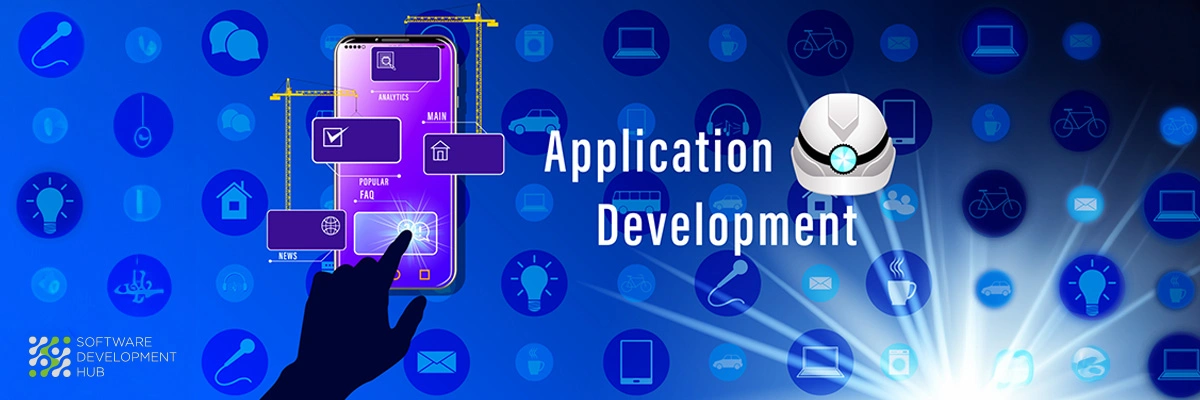How to Outsource Application Development Successfully in 2025
Outsourcing application development continues to be a key business strategy in 2025, especially for startups, SMEs, and enterprises aiming to build innovative software products without overextending internal teams. With rising competition, technology acceleration, and talent shortages in local markets, outsourcing remains a cost-effective and scalable approach.
In this guide, we’ll walk you through everything you need to know to outsource app development effectively this year—from vendor selection to project management and future-proofing strategies.
1. Why Outsource App Development in 2025?
Outsourcing is no longer just about saving money. In 2025, businesses outsource to:
- Access Global Talent: Tap into tech ecosystems in Ukraine, India, Poland, and Latin America.
- Accelerate Time to Market: Agile, DevOps-ready teams work in sprints and deliver faster.
- Reduce Operational Costs: Outsourcing can reduce development costs by up to 40%.
- Scale Flexibly: Hire as needed. Add engineers, QA, or DevOps experts on demand.
- Stay Focused on Core Business: Delegate technical implementation and focus on growth.
According to Deloitte, over 70% of companies cite cost reduction as the main reason for outsourcing, but in 2025, access to innovation and agility are just as crucial.
2. Understand Your Project Scope and Requirements
Before you approach any outsourcing partner, you must define:
- Type of Application (Web, Mobile, SaaS, ERP, AI-powered, etc.)
- Core Features and User Roles
- Timeline and Budget Range
- Expected Tech Stack (e.g., React, Flutter, Node.js, Kubernetes, etc.)
- Security or Compliance Needs (e.g., GDPR, HIPAA)
Tools like Miro and Jira can help teams map out the MVP and organize the backlog before outsourcing begins.
3. Choose the Right Outsourcing Model
Depending on your needs, you can select from:
DevOps as a Service (DaaS)
Ideal for automating CI/CD, infrastructure, and monitoring. SDH, for example, offers DaaS with cloud cost optimization, disaster recovery, and automated testing.
Dedicated Team
You control the roadmap while the outsourcing company handles execution. Best for long-term collaborations.
Fixed Price / Time & Materials
- Fixed-price fits well-defined projects.
- Time & Materials offers flexibility. Great for evolving requirements.
4. Shortlist and Vet Development Partners
Evaluate vendors based on:
|
Criteria |
Importance |
|
Relevant Case Studies |
Must-have |
|
Team Composition & Skillset |
Crucial |
|
Technology Stack |
Match with your plan |
|
Agile & DevOps Maturity |
Critical for 2025 |
|
Security & Compliance |
Non-negotiable |
Tip: Look for partners like SDH (Software Development Hub), a one-stop digital transformation company with 100+ developers, 19+ years in the market, and specialties across industries like healthcare, logistics, and fintech.
5. Build a Robust Collaboration Framework
Kickoff Planning
Define communication frequency, team roles, and reporting formats. Tools: Slack, Confluence, ClickUp, or MS Teams.
Agile + DevOps Methodology
Use sprints (2-week intervals), daily standups, and retrospective meetings to stay aligned.
Transparency & Documentation
Ensure version control (Git), sprint backlogs, test cases, and cloud costs are documented.
Data Privacy & NDA
Have NDAs and IP protection clauses in your contracts, especially for sensitive apps (e.g., healthcare or fintech).
6. Automate with DevOps from Day One
Modern outsourcing must integrate DevOps practices such as:
- CI/CD pipelines for rapid deployments
- Infrastructure as Code (IaC) to automate cloud provisioning (e.g., Terraform, AWS CloudFormation)
- Automated Testing (unit, integration, performance)
- Monitoring & Logging (e.g., Grafana, Prometheus, ELK Stack)
SDH specializes in embedding DevOps early—reducing release time by 3x and incidents by 50%.
7. Align on Quality Assurance and Performance
Don't just test at the end—make QA part of the process:
|
QA Focus |
Tool Examples |
|
Automated Testing |
Selenium, TestNG |
|
Performance Testing |
JMeter, LoadRunner |
|
Security Testing |
OWASP ZAP, SonarQube |
Set clear KPIs: max response time, error rate <1%, uptime >99.95%.
8. Budget, Contracts & Pricing Models
Pricing Options
- Time & Materials: Pay per hour; perfect for evolving projects.
- Fixed Price: Ideal for MVPs or tight scope.
- Flex Scope Contracts: SDH offers this hybrid model with a fixed budget & timeline but flexible scope.
Contract Clauses to Include
- Ownership of code/IP
- Payment milestones
- Termination conditions
- SLAs (Service Level Agreements)
9. Measure Success with Data
Track progress using both technical and business metrics:
|
KPI |
Target |
|
Time-to-Market |
Reduced by 30–50% |
|
Cost Reduction |
Up to 40% savings |
|
Defect Density |
< 1 per 1000 LOC |
|
Deployment Frequency |
Daily or weekly |
|
Customer Satisfaction |
>90% |
Analytics platforms like Google Analytics (for user feedback) or New Relic (for performance) are crucial.
10. Future-Proof with Scalability & Support
Great outsourcing doesn’t end at delivery.
Ensure your partner provides:
- Scalability Planning
- Post-launch Maintenance
- Security Patching & Compliance
- User Feedback Loops
- Knowledge Transfer Sessions
Vendors like SDH offer Build-Operate-Transfer (BOT) models and 24/7 DevOps support, helping teams become independent over time.
Building Lasting Value Through Smart Outsourcing in 2025
Outsourcing application development in 2025 is no longer a simple cost-saving tactic—it has become a vital lever for innovation, agility, and strategic growth. The modern outsourcing landscape demands a deeper level of partnership, one rooted in shared goals, mutual trust, and continuous improvement. Companies today are not just handing over development tasks; they are co-creating future-proof, user-centric digital products with expert teams around the globe.
The most successful organizations treat their outsourcing partners as true extensions of their internal teams. They invest time in choosing the right collaboration model, align on expectations, and integrate Agile, DevOps, and cloud-native practices from the very beginning. This modern approach doesn't just shorten the development cycle—it improves product quality, ensures regulatory compliance, boosts customer satisfaction, and ultimately maximizes return on investment (ROI).
Whether you're a fast-scaling startup launching a Minimum Viable Product (MVP), an established enterprise modernizing legacy systems, or a tech leader driving digital transformation through AI or SaaS platforms, outsourcing can accelerate your journey—when done strategically. It empowers you to tap into global talent pools, reduce time-to-market by up to 50%, cut infrastructure and operations costs by 40%, and scale your development capacity without the overhead of in-house hiring.
But the key lies in smart execution. Clear requirements, measurable KPIs, DevSecOps integration, and transparent communication are non-negotiable in this new outsourcing era. Partners like Software Development Hub (SDH) exemplify this approach by offering tailored engagement models—ranging from DevOps as a Service and flexible scope contracts to full lifecycle product development—backed by 19+ years of proven experience and a diverse global team.
As we move deeper into the digital-first economy, the demand for scalable, resilient, and high-performing applications will only intensify. Outsourcing, when executed with the right strategy, transforms from a tactical necessity into a long-term competitive advantage.
Now is the time to evaluate your digital roadmap, identify opportunities for optimization, and choose a partner that not only builds software—but builds with you.
Categories
About the author
Share
Need a project estimate?
Drop us a line, and we provide you with a qualified consultation.








